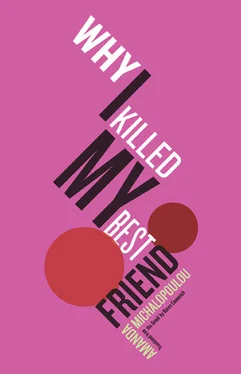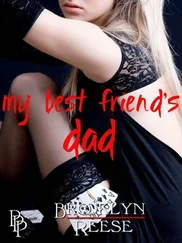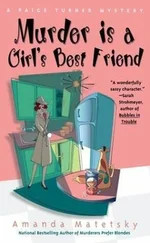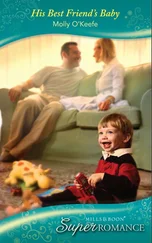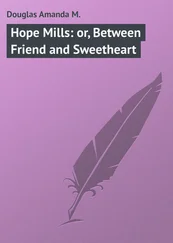Now I miss you desperately and regret all that. There are times when I’m gripped by the morbid desire to open your closets, to touch all your clothes from this final phase of your life, these clothes that rustle gently, and to comfort myself with your smell — the heavy, womanly perfume you started to wear after Antigone died. Were you trying to replace her? And yet you followed her fate down to the letter. You may have acted like one of those girls who are in love with their fathers, but all along you clung pathologically to your mother’s skirts .
So, then, we lied to one another constantly. Silly, heroic lies. I never told you about my little finger, but then again did I tell anyone else? Even myself? Perhaps that was the hardest thing of all: you knew more about me than I did, and you made me spit it all out, one detail at a time, like half-chewed insects, as day broke on Amorgos. And when I’d finally realized who I was and how I’d gotten to where I was, you opened the door and left, because Mayakovsky said that’s what real revolutionaries do. You’ll never know what it means to finally tell your deepest secret and have your only witness walk out the door, leaving you at your own mercy .
“You’ll never know”: I’m talking to you as if you exist, as if you just went into the kitchen for a minute to fix a round of martinis. The shock of your death is something I have no experience of, nothing to compare it to. I didn’t go to the memorial service, or even to the funeral: as your casket was being lowered into the ground, I was at home drawing, like the insensitive brute I am — drawing pitch-black caves. Malouhos came by the apartment afterward and cried like a child, grabbed me by the shoulders and said, “Let me hold you, there’s even more of Anna on you than there is on me.” He practically dragged me here to the house in Ekali. Kayo was standing stock-still and expressionless in the middle of the living room. Daphne was curled up in her cave. Your cigarette butts filled an ashtray in the bathroom, your satin pajamas were on the bed, though it had been a week since you last slept there. I imagine you in full gear at the occupation, sleeping in your clothes, making coffee and sweets and cursing me, the coward, for ruining your plans. Are you satisfied, at least? Deeply, existentially fulfilled? I’ll never know. I only started to understand you after you left us, and the further away you get, the more unconfirmed my theories will remain. If I keep going like this, I might invent an Anna who bears no relation to the real one .
But I owe you a real Maria. After you hung up the phone on me, I went to the rector’s wife and told her something that I just as easily could have told myself — I simply needed an audience for the promise to stick: I want to make art, to take photographs, to wander station platforms with a Super 8. Do you know what I’m most afraid of? I’m afraid that all the newborns in the world might die and leave a deep wound in their mothers’ hearts; I’m afraid of blood, I still have nightmares about severed fingers; I’m afraid of pretending to be brave when art is the only thing that gives me courage. Art is my revolution, the embodiment of my emotions. I know it won’t change the course of history, but not all of us are cut out for grand gestures. And even your grand gestures got distorted. Our old classmate Angeliki (who goes by Geli, now, it turns out) described you as an aesthete who frequented charity balls. I’d have thought you would rise from the grave to give her a black eye. One leftist columnist wrote that you taught us “the postmodern political language of the masses, the acceptance of paradox and the end of leaders.” You, the bossiest leader I know .
What am I supposed to do with you? For starters, I need to settle our unfinished business. I killed you just as you killed me. I didn’t push you from an open window, the way people do in movies. And besides, you’re still alive — vague, elusive, the eternal Anna. When I’m overcome by a need for explanations, I’ll read your poems, where the real you can’t hide. In those poems you make mistakes and admit it, you love and forgive without fear. Perhaps you should have tried to write poetry instead of chasing my dream of making art. And perhaps I should have told you right from the start that only when I’m covered in paint am I truly happy .
Write to me,
Maria
A bird flies through the garden. I prefer to think it’s a good spirit flitting through the room. A witch, set free.
Daphne comes into the office, rubbing her eyes. Those eyes don’t belong in her face: they’re adult eyes, serious, red, surrounded by wrinkles and folds.
“Don’t do that, sweetheart.”
“Why not? It makes me see colored circles. Do you know any stories about colored circles?”
I tell her whatever comes into my head. That the colored circles are soap bubbles coming from a witch’s mouth, because her little apprentice witch was very mischievous and tricked her into eating a bar of magic soap.
Daphne’s mouth drops open. When she’s surprised, she looks just like her mother. “Soap? That little witch is even naughtier than I am!”
Yes, the apprentice witch is mad at all the other witches, she wants to take away their magic so they turn back into people.
“But won’t she turn back into a person, too?”
Yes, she will. But she’s tired of living in caves and riding on broomsticks, she wants a simple life, a house with a yard, where she can sit on the grass and talk to the goldfish in the pond, and work the simple magic of everyday life — like whistling, for instance.
“And the caves?”
Well, the caves can become museums about magic, where we’ll put broomsticks and magic soap, and when the former witches buy a ticket to go in, they’ll feel a slight dizziness in their heads, but only for an instant, since they will no longer remember the time when they could do anything they wanted.
“How does the story end?”
Oh, but the story doesn’t end. Show me even just one person who will manage in the course of this life to visit all the caves there are.
TRANSLATOR’S ACKNOWLEDGMENTS
Translation is always a work of collaboration, but this particular book is the result of a closer collaboration than most. Why I Killed My Best Friend is a coming-of-age tale rooted in a succession of particular historical moments. It is uncannily prescient of the current crisis in Greece, while also hearkening back to a series of earlier crises, from the exile of many Greek citizens during the dictatorship of 1967–1974 to the AIDS crisis of the 1980s to the continual, internal ideological crises of the Greek left. The dizzying array of cultural and historical references in the novel kept me running to internet resources, to Greek historians, to countless friends in Greece and elsewhere, and of course to the author herself.
In addition to exchanging any number of email queries and responses, drafts and corrected drafts, Amanda Michalopoulou and I were fortunate to spend a week in residence at Ledig House in fall 2012, in the company of four other translator-author pairs working together in well-fed isolation. I am grateful to D. W. Gibson and the folks at Ledig House for providing this invaluable opportunity, and particularly to the other translators in residence — Neil Blackadder, Lisa Dillman, Tanya Paperny, and Joel Streicker — for the many conversations and inspirations small and large. I am also immensely grateful for Amanda’s close cooperation during that week, and for her eagerness to use this translation as an excuse to revisit and even revise the original itself. (Careful readers familiar with the Greek may notice some larger-scale changes than translators usually allow themselves; these were all made with Amanda’s consent and involvement.) As strange as it may be to dedicate a translation to the author of the original, I would like to dedicate this translation to her.
Читать дальше
